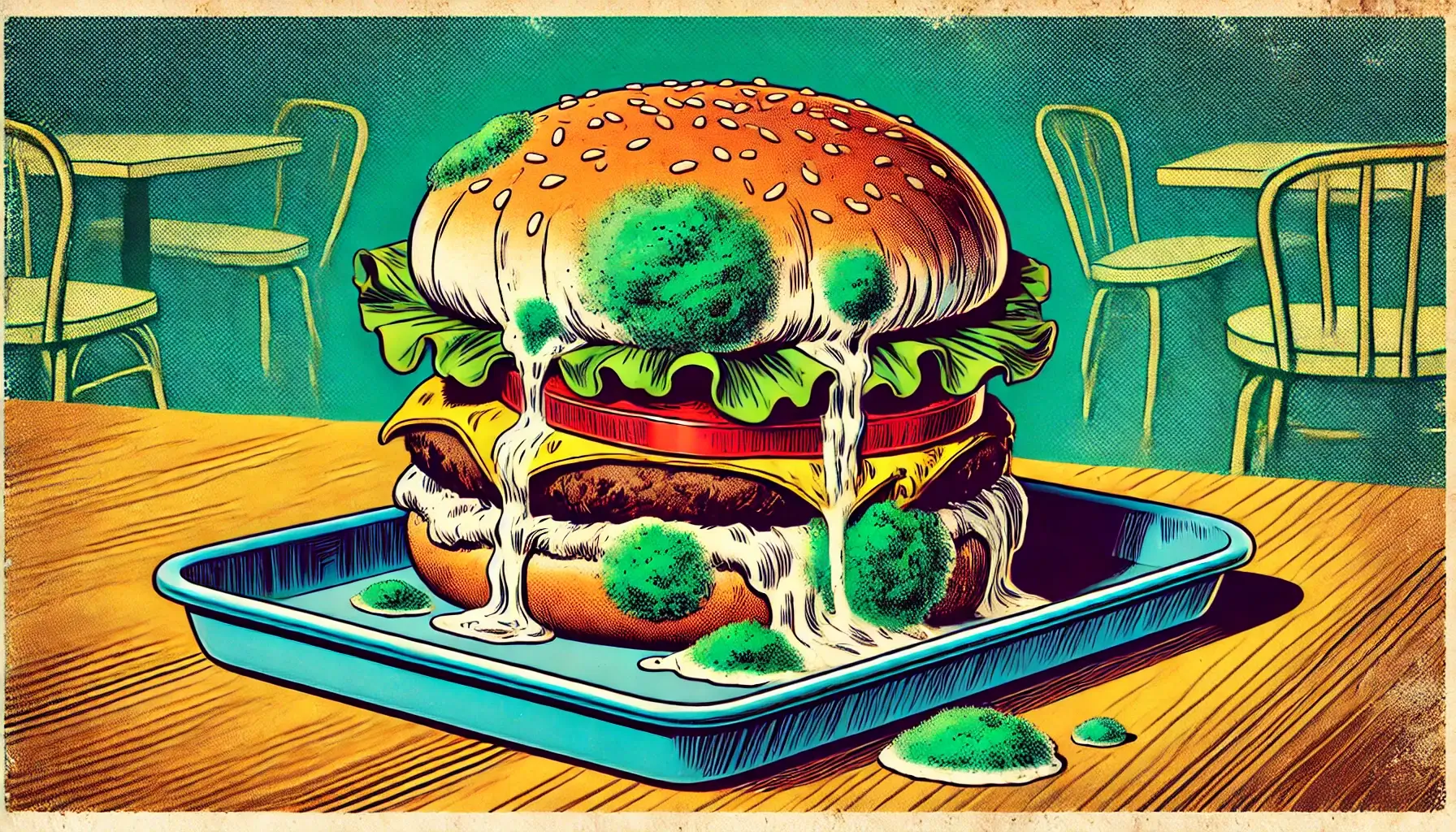Reheating Fast Food for Thought

How Regurgitated Narratives Are Starving Innovation
In the 1980s, the publishing world underwent a transformation. As Vanity Fair chronicled in its article “Fast Food for Thought,” publishers began to prioritize style over substance. Serious literature was repackaged with eye-catching, MTV-inspired covers, marketed not for depth but for broad appeal. Around the same time, CNN launched its 24-hour news cycle, revolutionizing journalism by turning it into an endless stream of “breaking news.” Both industries became more accessible – but at what cost?
This shift wasn’t just a business decision. It was a philosophical moment: the commodification of thought itself. Instead of fostering genuine understanding or innovation, these industries began reheating and recycling ideas to maximize profit and predictability. This obsession with regurgitated narratives hasn’t just hollowed out the news industry – it’s permeated the tech sector and our broader culture, leaving us with a society that craves convenience over truth, and control over creativity.
“Would You Like A Fried Brain With That?”
The metaphor of fast food is apt. Much like a McDonald’s hamburger that never decomposes, the news industry and the tech sector thrive on narratives that are endlessly reheated but never evolve. They are built for instant gratification, not long-term nourishment. News stories and innovations alike are stripped of nuance, simplified for mass consumption, and endlessly recycled until they lose all meaning.
Take the media’s coverage of major events like January 6th. The initial reporting shocked and captivated the public, but years later, what do we have? The same footage, the same soundbites, reheated over and over again. We’ve made no meaningful progress in understanding the root causes of that day or how to prevent similar events. Instead, the story has been reduced to a divisive cultural touchstone – profitable for media companies but utterly unproductive for society.
Similarly, in the tech world, we see monopolistic giants hoarding capital and suppressing competition. Companies like OpenAI have grown bloated with investment, building tools that are impressive but not necessarily innovative. Meanwhile, smaller players like DeepSeek, which manage to build more efficiently and with less capital, are dismissed as threats. This dynamic mirrors the media’s treatment of dissenting narratives: innovation and truth are suffocated in favor of preserving the status quo.
A Philosophical Cost of Recycled Narratives
At its core, this trend represents a philosophical failure: a fear of uncertainty. Real invention, whether in thought or technology, is unpredictable. It challenges existing paradigms and forces us to grapple with uncomfortable truths. But regurgitated narratives offer the illusion of stability. They allow us to feel informed without actually understanding, to feel innovative without taking risks.
Philosophically, this reliance on recycled ideas is a rejection of growth. True understanding requires us to engage with the complexity of the world, to question our assumptions, and to embrace the possibility of being wrong. But the news industry and tech sector have trained us to prefer simplicity. They’ve turned us into consumers of thought, rather than participants in its creation.
The Weaponization of Convenience Is Lethal
The consequences of this philosophical failure are far-reaching. By prioritizing convenience and predictability, we’ve created systems that actively suppress progress. In the media, this means narratives are framed not to inform but to entertain and distract. In tech, it means monopolies that stifle competition and prevent groundbreaking innovations from taking root.
For example, when I say, “The stock market is overvalued,” it’s not just dismissed – it’s treated as a threat. People deeply invested in the market don’t want to hear it, and the media doesn’t want to tell it. The same is true for companies like DeepSeek, which challenge the bloated inefficiencies of their competitors. Instead of being celebrated, they are framed as anomalies or threats to stability.
This isn’t just bad for business – it’s bad for society. A culture that suppresses inconvenient truths and unpredictable innovations is a culture that stagnates. It’s a culture that prioritizes short-term comfort over long-term resilience.
Breaking the Habit Will Require A Detox
So how do we break free from this cycle? How do we stop reheating fast food for thought and start cooking something real?
- Embrace Complexity: We need to demand more from our media and our tech industries. Instead of settling for regurgitated narratives, we must seek out diverse perspectives and challenge ourselves to engage with difficult truths.
- Support Innovation: Just as we should support local farmers over fast food chains, we should support startups and independent creators over monopolistic giants. Real innovation comes from the margins, not the centers of power.
- Reject Convenience: Convenience is a seductive trap. Whether it’s in the news we consume or the technology we use, we must be willing to sacrifice ease for substance.
- Foster Media Literacy: A healthier intellectual diet requires us to recognize when we’re being manipulated. Media literacy isn’t just about spotting fake news – it’s about understanding the systems that shape the narratives we consume.
We Need A More Nourishing Future In Our Economy
The future of thought – whether in journalism, technology, or culture – depends on our willingness to reject the fast food model. We must demand better, not just from the systems around us but from ourselves. That means embracing uncertainty, valuing creativity, and recognizing that truth isn’t always convenient.
If we can do that, we might finally break free from the cycle of reheated narratives. We might stop starving innovation and start building a society that values substance over spectacle. It won’t be easy – but then again, nothing worth doing ever is.
